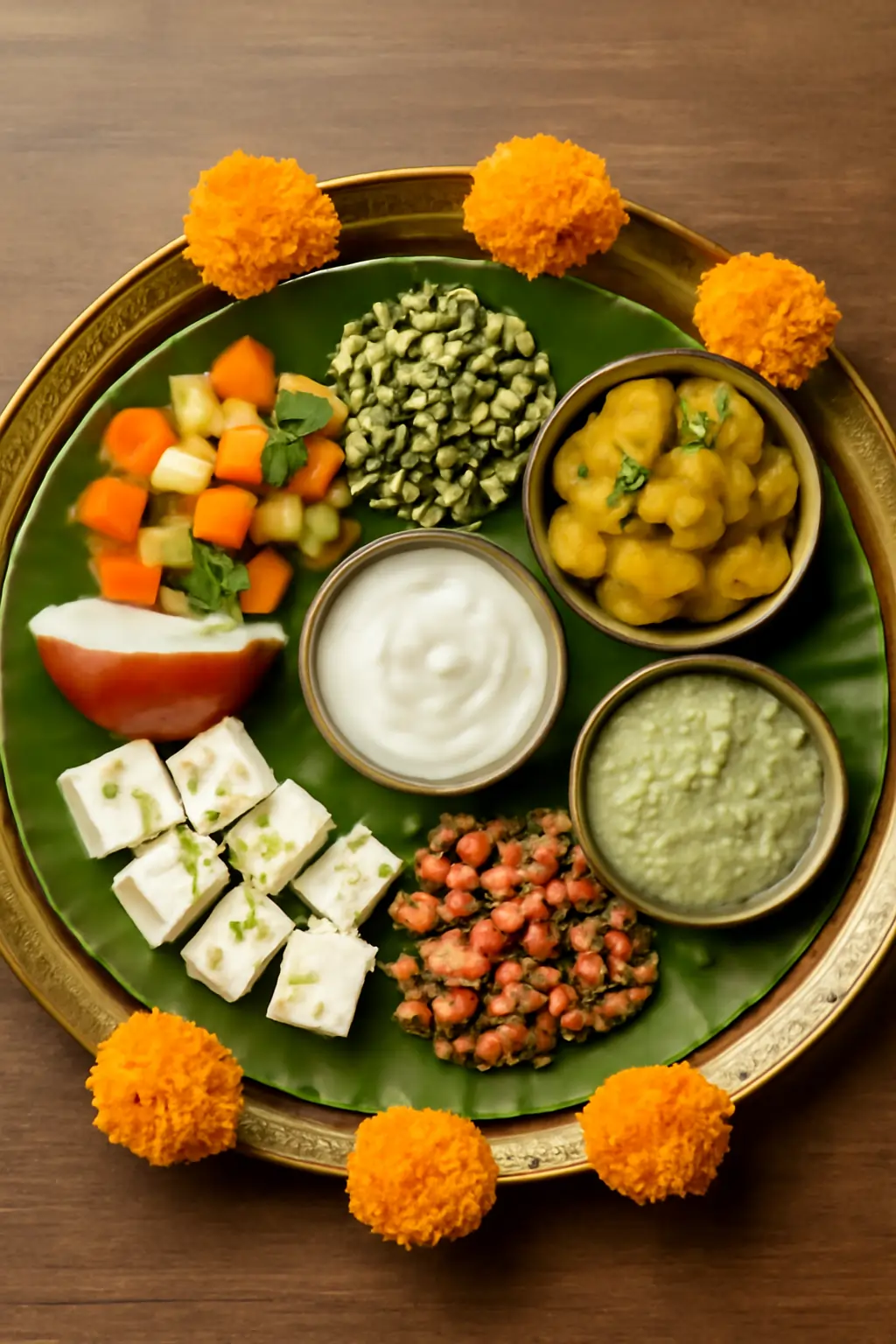Balancing Faith and Health
Ekadashi fasting holds deep spiritual significance in Hindu tradition. Many devotees observe it with sincerity to honor Lord Vishnu and seek inner purification. However, for people living with diabetes, this sacred practice often raises concerns. Long fasting hours, restricted food choices, and sudden sugar spikes can create health challenges. Fortunately, with mindful planning, you can observe Ekadashi without compromising your well-being. Let’s explore how diabetics can keep their devotion intact while eating wisely.
Also read – Ekadashi for Working Professionals: 10-Min Meal Pre
The Essence of Ekadashi Fasting
Ekadashi occurs twice a month—on the 11th day of the lunar cycle. Traditionally, devotees avoid grains, beans, and heavy foods. Instead, they choose light, sattvic meals like fruits, nuts, and milk. While this approach supports spiritual focus, it may not always align with diabetic dietary needs. Therefore, striking the right balance between tradition and health becomes essential.
What Diabetics Can Eat on Ekadashi
Making smart choices ensures steady energy and stable blood sugar. Here are diabetic-friendly food options for the fasting day:
- Low-GI Fruits: Opt for papaya, guava, or berries. These fruits release sugar slowly and prevent sudden spikes.
- Nuts and Seeds: Almonds, walnuts, and pumpkin seeds provide protein and healthy fats, keeping you full for longer.
- Vegetables: Include cucumbers, bottle gourd, or spinach in light preparations. These vegetables are hydrating and low in carbs.
- Dairy Options: A glass of unsweetened buttermilk or a bowl of plain yogurt soothes digestion and offers protein.
- Samak Rice (Barnyard Millet): This popular Ekadashi substitute is lighter than regular rice and gentler on blood sugar levels.
By combining these foods, you can create balanced meals that nourish both the body and spirit.
Foods to Avoid for Safe Fasting
On the other hand, certain traditional fasting items may cause sugar fluctuations. Pay attention to what you skip:
- High-Sugar Fruits: Bananas, mangoes, and grapes can spike glucose quickly.
- Deep-Fried Snacks: Sabudana vadas and fried chips overload the body with carbs and oil.
- Potatoes and Sweet Potatoes: These starchy foods raise blood sugar rapidly.
- Excess Honey or Jaggery: Natural sweeteners still affect sugar levels and should be limited.
- Packaged Fasting Foods: Many ready-to-eat items contain hidden sugars and preservatives.
Avoiding these helps you prevent the exhaustion and dizziness that often follow improper fasting choices.
Practical Tips to Observe Ekadashi with Ease
Fasting does not have to feel overwhelming when you plan ahead. Keep these steps in mind:
- Stay Hydrated: Drink enough water and herbal teas to maintain energy.
- Eat in Small Portions: Break your fast-friendly meals into smaller servings to avoid sugar swings.
- Monitor Blood Sugar: Regular checks help you stay safe throughout the day.
- Consult Your Doctor: Always seek medical guidance if you plan to observe strict fasting.
- Rest and Meditate: Use fasting as a chance to calm the mind, rather than straining the body.
The Spiritual and Healthful Takeaway
Ekadashi reminds us that true devotion lies in discipline and mindfulness. For diabetics, adapting the fast to their health is not a compromise but a conscious choice. By eating the right foods and avoiding risky options, you honor both your body and your faith. Ultimately, a diabetic-friendly Ekadashi allows you to stay spiritually connected while nurturing your well-being.

